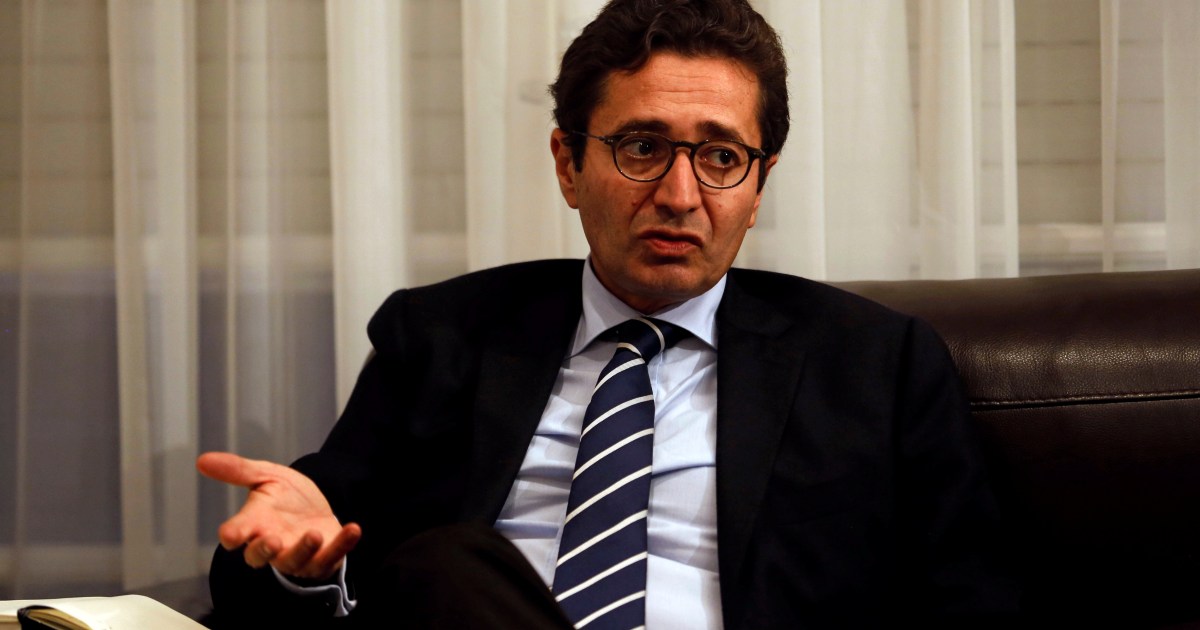Tunisian parties have proposed candidates for prime minister, including current, former and independent ministers, in preparation for the start of consultations to form a new government coalition, in light of a political crisis sparked by accusations by resigned Prime Minister Elias Fakhfakh of conflict of interest.
Hours before the deadline set by the Tunisian presidency that ended midnight last night, a spokesman for the Ennahda movement, Imad Khamiri, announced the nomination of: former Minister of Development and Investment Fadel Abdel Kafi, a businessman and former leader of the Democratic Bloc Party Muhammed Khayyam al-Turki.
Khumeiri said that the final choice of the Renaissance movement for these two figures is due to the economic and financial circumstance that the country is going through, and the need for personalities specialized in the field.
The Renaissance movement is the largest component of the resigned government, as it was represented by 6 ministers, as it is the largest bloc in Parliament, and it has 54 deputies out of a total of 217 deputies.
Because she did not possess a large parliamentary majority, after the last legislative elections, Ennahdha was compelled to nominate a person from outside her to lead the government, but her beloved candidate did not gain the confidence of Parliament, to start a difficult labor that ended with the birth of the government of the traps.
In turn, the Tunis Heart Party (27 deputies) proposed the same two candidates presented by Ennahda, according to what leaders of the party told local media, which is likely to be an agreement between the two parties to provide the same candidates.
The name of the former investment minister also appeared among the 4 candidates proposed by the Long Live Tunisia party led by former Prime Minister Youssef Chahed. The list includes - in addition to Abdel Kafi - the former finance and sports ministers Hakim bin Hamouda and Sunni in Sheikh, and the president of the Tunisian Football Federation Wadih Al-Jaree.
Abdel-Kafi resigned in 2017 from the government of Youssef El-Shahed, after he was also suspected of conflict of interest.
As for the Democratic Current Party (22 seats), the three ministers in the resigned government are nominated for the position. They are: Minister of Governance and Anti-Corruption Mohamed Abbou, Minister of State Property Ghazi Al-Shawashy, and Minister of Education Muhammad Al-Hamedi.
Recently, leaders of the Democratic Current and the People's Movement - which together with others form the "Democratic Bloc" (about 40 deputies) - have repeatedly stated that they will seek to exclude the Ennahda movement from the next government.
An-Nahdha spokesman, Imad Khamiri, responded that a government in which Al-Nahdha does not participate will not guarantee stability.
When it decided to withdraw confidence from the traps, the Al-Nahda movement announced the formation of a parliamentary alliance comprising 130 of its representatives, representatives of the Heart of Tunisia party, deputies of the Dignity Coalition and independents.
In the context, the Karama Coalition (19 deputies) announced yesterday not to participate in the consultations to nominate the new prime minister to succeed the traps, and he said he rejects the paper-consulting form that President Qais Saeed insists on imposing on the parliamentary blocs, stressing that he will not propose any candidate for the position of prime minister.
The Renaissance responds
Politically, too, Ennahdha yesterday criticized statements by the outgoing Prime Minister, Elias El-Fakhakh, who accused her of leading the endeavors that led to toppling his government.
Al-Fakhfakh accused the parties of the Ennahda Movement and the heart of Tunisia and what he called "networks of interests and influence", by dropping his government to serve its interests, and at the same time he admitted that he had made a mistake regarding the file of companies in which he owns shares, which concluded deals with the state.
In his response to these statements, Khalil al-Baroumi, a leader in Al-Nahdha, told Anadolu that it falls under the category of reaction and convulsion, especially after the resignation of the government and the beginning of the formation of a new government, stressing that the movement has established corruption.
Al-Baroumi added that public opinion and the media in Tunisia know that Ennahdha did not try to provoke traps with these files (suspicions of conflicts of interests) to expand the government, because this is not our morals and we do not take advantage of people's weaknesses.
It is noteworthy that the Renaissance called the traps to expand the ruling coalition to mobilize greater political and parliamentary support for the government in a way that facilitates its work, but he refused, and called on the movement to invest in the current coalition.

